Shows

Master MindsEpisode #36: Mapping the Human Genome with Dr. Eric Green, MD, PhDOn this episode, Will sat down with Dr. Eric Green, the director of the National Human Genome Research Institute (or NHGRI) since 2009, which is one of the research arms of the National Institutes of Health (NIH). Prior to his appointment, Dr. Green trained at Washington University School of Medicine in the laboratory of Maynard Olson, and later as an assistant Professor of Genetics, where he spearheaded WashU’s contribution to the Human Genome Project from beginning to end. In his time as Director of NHGRI, Dr. Green has pioneered the development of the precision medicine agenda, which aims to de...
2024-07-181h 13
Master MindsEpisode #35: The Story of Ubiquitin with Dr. Aaron CiechanoverIn this episode, Will sat down with Dr. Aaron Ciechanover, biologist and Distinguished Research Professor in the Rappaport Faculty of Medicine at the Technion, Israel Institute of Technology. Dr. Ciechanover is renowned for his work in studying the method that cells use to degrade and recycle proteins. While in the laboratory of Avram Hershko, they discovered that small proteins, called ubiquitin, were attached in chains to targeted proteins, marking them for degradation by a proteasome. This system is highly regulated and was subsequently found to be a factor in many diseases and areas of biology, so much that in 2004...
2024-06-1438 min
Master MindsEpisode #34: Uncovering New Worlds with Prof. Tansu Daylan, PhDToday, we sat down with Professor Tansu Daylan, astrophysicist, Assistant Professor of Physics, and faculty fellow at the McDonnell Center for the Space Sciences here at WashU. Dr. Daylan works with data from NASA’s Transiting Exoplanet Survey Satellite on the discovery and characterization of exoplanets. He is also interested in researching the particle nature of dark matter. Have you ever been interested in how researchers discover planets outside our solar system? Or perhaps wondered if there could exist life in other corners of our universe? Listen on to find out!
2024-05-3044 min
Master MindsEpisode #33: Discovering Hepatitis C Virus with Dr. Charles Rice, PhDToday we sat down with Dr. Charles Rice, the Maurice R. and Corinne P. Greenberg Professor in Virology at Rockefeller University. Dr. Rice is an expert in RNA viruses, viruses that use RNA as opposed to DNA in their genome, and studies the body’s innate immune response to infection. However, he is most known for his work on Hepatitis C Virus, which causes liver disease and cirrhosis if untreated. Dr. Rice was the first to achieve a successful cell culture of Hepatitis C, create a functional clone of the virus, and prove that the virus causes the disease. Th...
2024-04-3051 min
Master MindsEpisode #32: Autophagy and ATD with Dean David H. Perlmutter, MDToday, we sat down with Dr. David H. Perlmutter, the George and Carol Bauer Dean of Washington University School of Medicine, executive vice chancellor for medical affairs, and the Spencer T. and Ann W. Olin Distinguished Professor. Dean Perlmutter leads one of the largest medical schools in the country, currently ranked #2 in NIH funding among US medical schools nationwide. He is also a pediatric gastroenterologist who is internationally known for his research on autophagy and on alpha-1-antitrypsin deficiency or ATD, the latter of which is a genetic disorder resulting in liver damage. We hope you enjoy this episode...
2024-04-2244 min
Master MindsEpisode #31: How to Fix a Broken Heart with Dr. James Cox, MDIn this episode, we’re talking to the “father of cardiac arrhythmia surgery”, Dr. James Cox. The former Division Chief of Cardiothoracic Surgery here at WashU Med, Dr. Cox developed surgical procedures for multiple cardiac arrhythmias, including the Wolff-Parkinson-White syndrome, atrioventricular nodal reentry tachycardia, automatic atrial tachycardias, atrial flutter, atrial fibrillation and ventricular tachycardia. He is best known for developing the Cox-Maze procedure, the first cure for atrial fibrillation, which he performed for the first time at Barnes Jewish Hospital in 1987. Dr. Cox’s contributions and developments forever changed the field of cardiac surgery and have saved countless lives. We hope...
2024-04-0851 min
Master MindsEpisode #30: Crystallizing GPCRs with Dr. Brian Kobilka, MDToday, I sat down with Dr. Brian Kobilka, Professor in the Department of Molecular and Cellular Physiology at Stanford University School of Medicine. Dr. Kobilka is an expert on a class of receptors called G protein-coupled receports, or GPCRs, that are essential in a majority of biological processes including light, flavor, and odor perception and in the activity of adrenalin, dopamine, and serotonin. In fact, currently approximately half of all pharmaceuticals on the market target GPCRs. In the mid 1980s Dr. Kobilka and his colleagues from the Robert Lefkowitz lab were the first to clone the gene for an...
2024-04-0245 min
Master MindsEpisode #29: Merging Neutron Stars with Prof. Mark Alford, PhDToday, we sat down with Professor Mark Alford, theoretical physicist and former chair of the Department of Physics at Washington University. Prof. Alford researches the physics of ultra-high density matter, such as in the core of a neutron star to get insights on how particles behave in situations that we do not encounter on Earth. He has also done important work on characterizing Quantum Chromodynamics, or QCD, which describes the strong interactions between quarks that make up larger particles like protons and neutrons. In this episode, we talk about some of the basics of quantum mechanics and how they...
2024-02-2654 min
Master MindsEpisode #28: Advancing Neuro-Immunology with Dr. Jonathan Kipnis, PhDDr. Jonathan Kipnis is the Alan A. and Edith L. Wolff Distinguished Professor of Pathology and Immunology and Director of the Brain Immunology and Glia Center (BIG) at Washington University School of Medicine. Dr. Kipnis is well known for his discoveries on the interactions between the brain and the immune system, including meningeal lymphatics, previously thought to not exist, and how immune cells and cytokines impact cognitive functions like social behavior. These findings have mass implications for the role of the immune system in psychiatric and psychological disease. We hope you enjoy this episode.
2024-01-2950 min
Master MindsEpisode #27: A Conversation About Conservation with Dr. Sharon Deem, DVM, PhDToday were talking to Dr. Sharon Deem, Director of the Saint Louis Zoo Institute for Conservation Medicine. Prior to this, Dr. Deem worked for the Wildlife Conservation Society and Smithsonian National Zoo. A veterinarian and epidemiologist by trade, she is also the current president of the American Association of Zoo Veterinarians. Dr. Deem has conducted conservation and research projects in over 30 countries around the world, many of which are in Africa and South America. In this episode, we’re going to cover her focus on how disease and environmental changes affect wildlife populations, and her work with endangered species, suc...
2024-01-2140 min
Master MindsEpisode #26: The Evolution of Lizards with Prof. Jonathan Losos, PhDToday we're talking to Prof. Jonathan Losos, William H. Danforth Distinguished Professor of Biology here at Washington University. Professor Losos is an internationally renowned scholar in the field of evolutionary biology. He also serves as the Director of the Living Earth Collaborative, an academic partnership between WashU, the Missouri Botanical Garden, and the St. Louis Zoo to advance the study of biodiversity. His field work has taken him to various islands in the Caribbean and Central America. Currently, his lab at WashU studies the behavioral and evolutionary ecology of lizards, and how wild species adapt to changing urban environments...
2024-01-1647 min
Master MindsEpisode #25: Mapping the Brain with Dr. Deanna Barch, PhDDr. Deanna Barch is a psychologist and Vice Dean of Research for the College of Arts and Sciences at Washington University. She is the George B. Couch Professor of Psychiatry and former Chair of the Department of Psychological and Brain Sciences as well as Professor of Radiology. Dr. Barch is known for her work using neuroimaging to characterize cognitive deficits in patients with mental illness such as schizophrenia. She is one of the principal investigators for the Human Connectome Project, a multi-institutional effort to map connectivity in the healthy human brain to improve our understanding of how it is...
2023-12-1855 min
Master MindsEpisode #24: Miraculous Meteorites with Br. Robert Macke, SJ, PhDBr. Robert Macke is a Jesuit Astronomer at the Vatican Observatory and Curator of the Vatican Meteorite Collection. Br. Bob is the world expert on measuring physical properties of meteorites, including density, porosity, magnetic susceptibility, and thermal properties. He has been at the forefront of developing new methods, and improving old ones, to characterize meteorites and even lunar samples from the Apollo missions. For his expertise in meteorites, Br. Bob was recruited to NASA’s OSIRIS-REx, the first U.S. mission to collect a sample from an asteroid and return to Earth. The target was a near-Earth asteroid named Be...
2023-12-1137 min
Master MindsEpisode #23: Peering into the World of Single Molecules with Prof. W.E. Moerner, PhDProf. W.E. Moerner is the Harry S. Mosher Professor of Chemistry, Professor, by courtesy, of Applied Physics at Stanford University, and WashU alum! Professor Moerner is a physical chemist, a scientist that studies chemical processes using physics. In 1989, he and his postdoc developed a method that accomplished the first ever optical detection and spectroscopy of a single molecule, something that was previously thought to be impossible. Single molecule spectroscopy laid the groundwork for using fluorescence in individual molecules to study processes inside living cells. This technique, called super-resolved fluorescence microscopy, was revolutionary because it enabled scientists to attain hi...
2023-11-1751 min
Master MindsEpisode #22: Using Lasers to Treat Glioblastoma with Dr. Albert H. Kim, MD, PhDDr. Albert H. Kim is the August A. Busch Jr. Professor of Neurological Surgery, Senior Vice-Chair of the Department of Neurosurgery, and Professor of Genetics, Neurology, and Developmental Biology at Washington University School of Medicine. He is also the inaugural Director of the Washington University Brain Tumor Center and Surgical Director of the Pituitary Center. Dr. Kim is an expert in glioblastoma, the most common and most aggressive primary brain tumor in adults. His laboratory studies the ways that glioblastoma arises as well as ways to treat it through targeting genetics, metabolism, and the immune system in addition to...
2023-10-2357 min
Master MindsEpisode #21: From Cairo to COVID-19 with Dr. Ali Ellebedy, PhDDr. Ali Ellebedy is the Associate Professor of Pathology and Immunology, of Medicine, and of Molecular Biology at Washington University School of Medicine. Dr. Ellebedy’s research surrounds B cell immune responses and he has made outstanding contributions to studying the COVID-19 virus. His work on the influenza virus informed initial vaccine development efforts, and his lab was instrumental in detailing responses to Moderna and Pfizer vaccine trials. In the height of the pandemic, his team published 41 manuscripts, and his work has been acknowledged by leading scientists around the world. This one was an honor...and a blast!
...
2023-10-1140 min
Master MindsEpisode #20: Zika, Dengue, and West Nile Virus with Dr. Michael S. Diamond, MD, PhDDr. Michael Diamond is an infectious diseases specialist and the Herbert S. Gasser Professor of Medicine at Washington University School of Medicine. Dr. Diamond is widely recognized for his research on RNA viruses, particularly West Nile virus and Zika virus, contributing much to their molecular basis and immunity. His work as Associate Director of the Bursky Center for Human Immunology has led to the development of many antiviral therapies for these viruses. Recently, his lab has studied the pathogenesis of SARS-CoV-2 and led the development of the first nasal vaccine against COVID-19. For his work, Dr. Diamond has received...
2023-10-0155 min
Master MindsEpisode #19: Targeting Ovarian Cancer with Dr. Dineo Khabele, MDDr. Dineo Khabele is the Mitchell & Elaine Yanow Professor and Chair of the Department of Obstetrics & Gynecology at Washington University School of Medicine. She is a renowned physician-scientist specializing in gynecological oncology with a focus on ovarian cancer. In this episode, we discuss various aspects of ovarian cancer, such as causes, pathophysiology, and treatments. We also did a deep dive on her work developing novel treatments for ovarian cancer and how they work on a molecular level. I hope you enjoy this episode.
Title music: World Is Holding...
2023-09-2151 min
Master MindsEpisode #18: Jazz, Genetics, and Neurofibromatosis with Dr. David Gutmann, MD, PhDDr. David Gutmann is the Donald O. Schnuck Family Professor of Neurology and Director of the Neurofibromatosis Center at Washington University School of Medicine. Dr. Gutmann’s expertise lies in the study of neurofibromatosis, or NF, a genetic disorder which causes tumor growth in the nervous system throughout the body. His work has received international recognition, resulting in him being honored with the 2012 Children’s Tumor Foundation Frederich von Recklinghausen award and Election as a Fellow of the American Association for the Advancement of Science. He was also awarded an Alexander von Humboldt Award and an Einstein Fellowship from the...
2023-09-1049 min
Master MindsEpisode #17: Stopping the Clock with Dr. Erik Herzog, PhDThis week on Master Minds, we talked to Dr. Erik Herzog, Viktor Hamburger Distinguished Professor in Arts & Sciences and Professor of Biology at Washington University. Dr. Herzog is a chronobiologist - a scientist that studies how organisms create biological rhythms to help adapt to their environment. He is an expert on how the brain regulates circadian rhythms, which are physiological processes that follow a roughly 24-hour cycle. Circadian rhythms are relevant to nearly all other aspects of biology, including fluctuations in body temperature, hormone levels, and sleep as well as in the context of disease. Throughout the interview, Dr...
2023-03-0144 min
Master MindsEpisode #16: Journey Through the Cosmos with Prof. Ramanath Cowsik, PhDProfessor Cowsik is considered by many to be the 'Father of Astroparticle Physics' for his invention of the leaky box model for the observation of cosmic rays and his discoveries characterizing neutrinos and dark matter as having a role in the Big Bang. The James S. McDonnell Professor of Space Sciences here at WashU, he has been compared to Enrico Fermi for his immensely productive career in theoretical and experimental physics. In this episode, we talk to Dr. Cowsik about the origin of the universe, dark matter, neutrinos, Grand Unified Theory, and more.
2022-12-1136 min
Master MindsEpisode #15: Rice, Research, and Russian Wolves with Dr. Barbara Schaal, PhDToday, we will be learning about genetics and evolution with Professor Barbara Schaal, evolutionary biologist and the Mary-Dell Chilton Distinguished Professor in Arts and Sciences at WashU. A pioneer in the field of plant evolution, she was one of the first to apply molecular genetic techniques to understanding evolutionary processes. Professor Schaal has served as president of the Botanical Society of America, the Society for the Study of Evolution, and the American Association for the Advancement of Science. She has also served as vice president of the US National Academy of Sciences and as a member of President Obama’s...
2022-11-1632 min
Master MindsEpisode #14: Making (False) Memories with Dr. Henry Roediger, PhDToday, we are taking a deep dive into the brain to learn about psychology of memories. We sat down with Dr. Henry Roediger, James S. McDonnell Distinguished University Professor of Psychological and Brain Sciences here at WashU and co author of the book, “Make It Stick: The Science of Successful Learning”. Dr. Roediger has been a pioneer in studying memory accessibility and retrieval, particularly false memories. Our conversation spanned topics from improving the Navy SEAL’s training to testing the reliability of eyewitness accounts in court.
Title music: World...
2022-09-0828 min
Master MindsEpisode #13: Preventing Cancer and Chronic Disease with Dr. Graham Colditz, MD, DrPHIn this episode of Master Minds, we sit down with Dr. Graham Colditz, epidemiologist and public health expert. Dr. Colditz is the Associate Director for Prevention and Control at Siteman Cancer Center and Chief of the Division of Public Health Sciences in the Department of Surgery at Washington University School of Medicine. He is also an adjunct professor of epidemiology at Harvard T.H. Chan School of Public Health. Dr. Colditz is an internationally recognized leader and researcher in cancer and chronic disease prevention and is currently the 4th highest cited researcher in the world with an h-index of 299...
2022-04-0142 min
Master MindsEpisode #12: Admission to Med School and the Emergency Room with Dr. Greg Polites, MDIn this episode of Master Minds, we sit down with someone who is somewhat of a celebrity among the pre-med students at WashU. Dr. Greg Polites is the founder of MedPrep, a series of classes that students can take to learn more about the field of medicine. He is, by training, an emergency medicine physician and currently serves as the chair of the central subcommittee on the Admissions Committee for the Washington University School of Medicine. Over the course of this episode, you will see how Dr. Polites’ love of medicine and love of teaching coevolved and led to hi...
2022-03-1334 min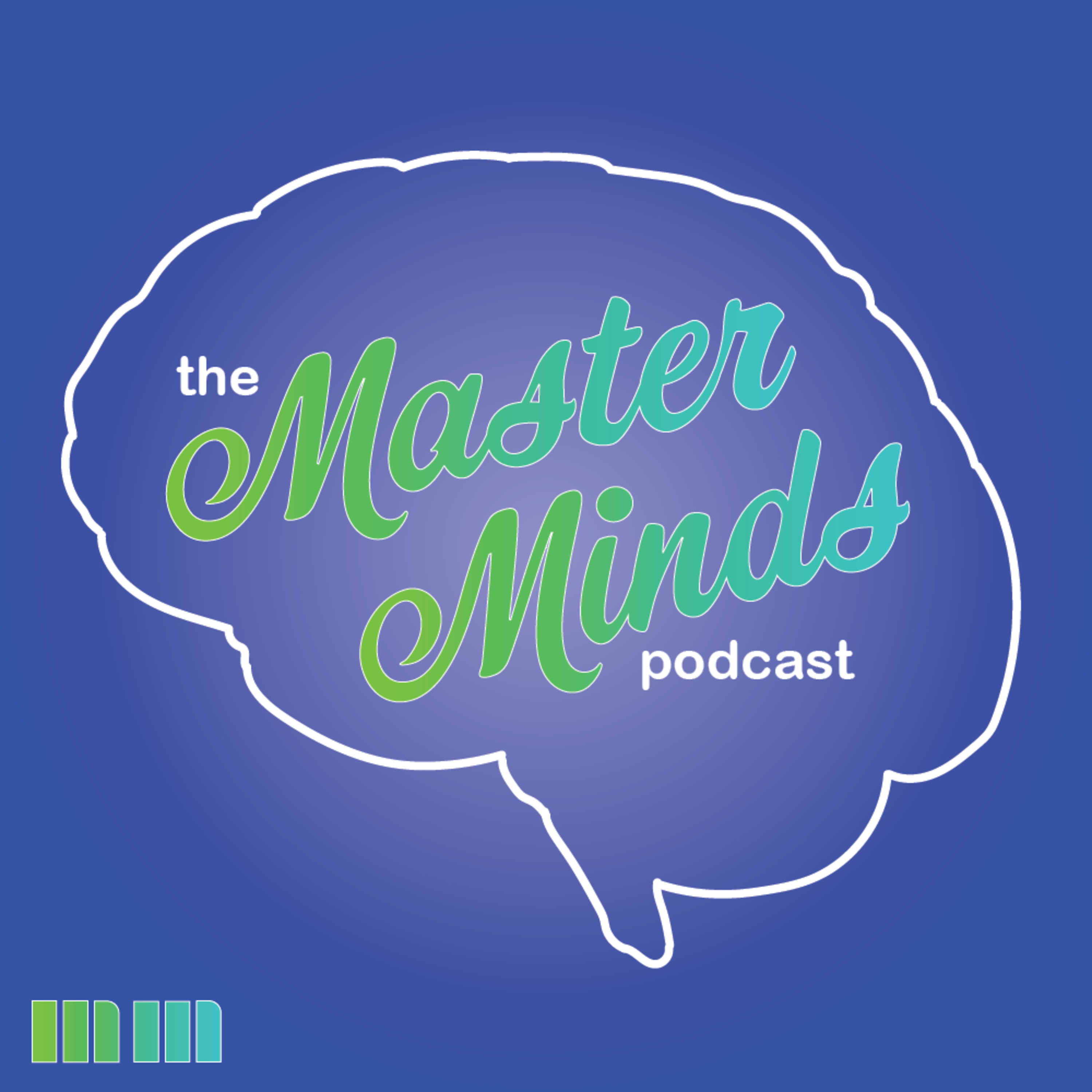
Master MindsEpisode #11: Contagion, Cadavers, and The Human Comedy with Prof. Rebecca Messbarger, PhDIn this episode of the podcast, we’re taking a slight detour from our usual guest, and I couldn’t be more excited. Professor Rebecca Messbarger wears many hats, among them, Professor of Art History and Global Studies, Director of Undergraduate Studies in Italian, and Co-founder and Director of Medical Humanities here at WashU. This episode is a fascinating dive into how literature and art, both ancient and new, inform modern medicine. We talk about medieval history and Boccacio’s Decameron and Frankenstein, and a lot more. And who knows, maybe after hearing Professor Messbarger talk, you too will find y...
2022-01-2632 min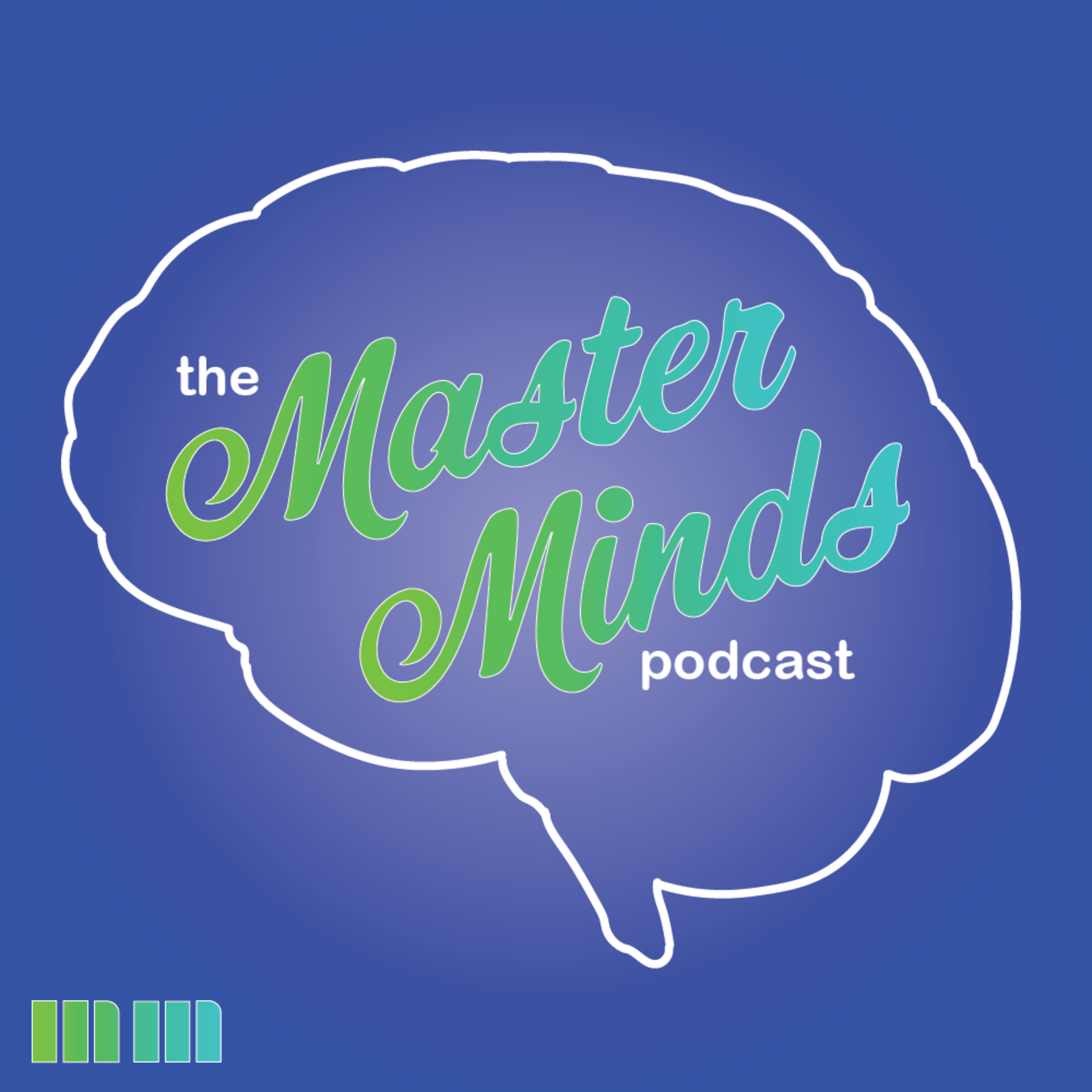
Master MindsEpisode #10: Mission to Mars, Venus, and the Moon with Prof. Raymond Arvidson, PhDDr. Ray Arvidson is the James S. McDonnell Distinguished University Professor and Professor of Earth and Planetary Sciences at Washington University. He directs the Earth and Planetary Remote Sensing Laboratory, where he studies terrestrial and extraterrestrial planetary surfaces, including Mars, Venus, and the Moon. Professor Arvidson has led and participated in many major NASA projects, most notably as the Deputy Principal Investigator of the Mars Exploration Rover Missions. What can the rovers tell us about the history of Mars? How can we use this info to better understand our own planet? If you are a space travel fanatic and...
2022-01-1239 min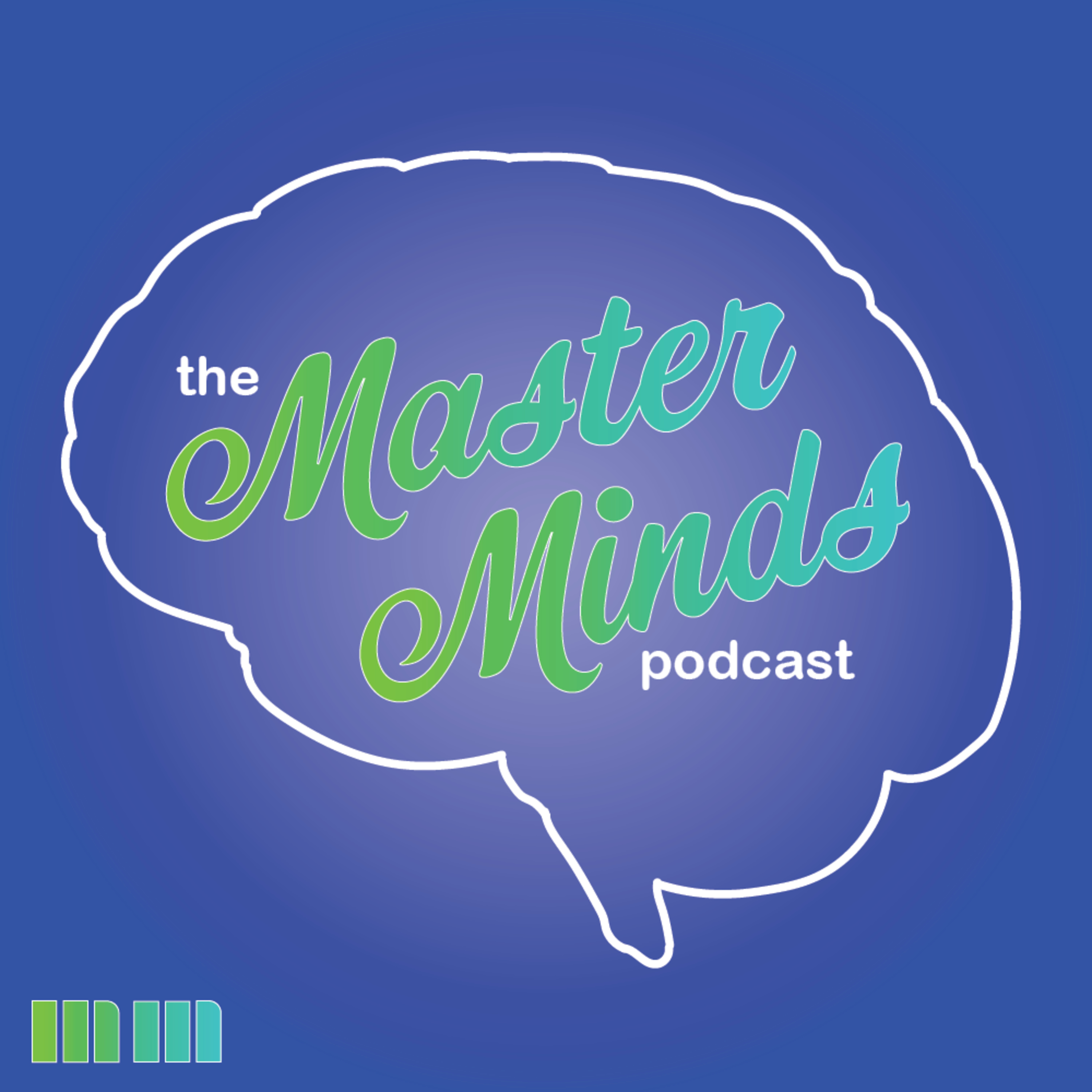
Master MindsEpisode #9: The Race Against the Virus with Dr. Michael Kinch, PhDWe were so excited to have the opportunity to sit down with Dr. Michael Kinch: author, scientist, and Associate Vice Chancellor at WashU. Dr. Kinch has a scientific background in cancer and immunological and infectious diseases. He founded and currently directs the Centers for Research Innovation in Biotechnology and Drug Development here at WashU. In this episode, we’ll discuss Dr. Kinch’s contributions to the development of COVID-19 vaccines, his research on drug discovery and rollout, and his analysis on price increases in the pharmaceutical industry.
Title musi...
2021-11-1334 min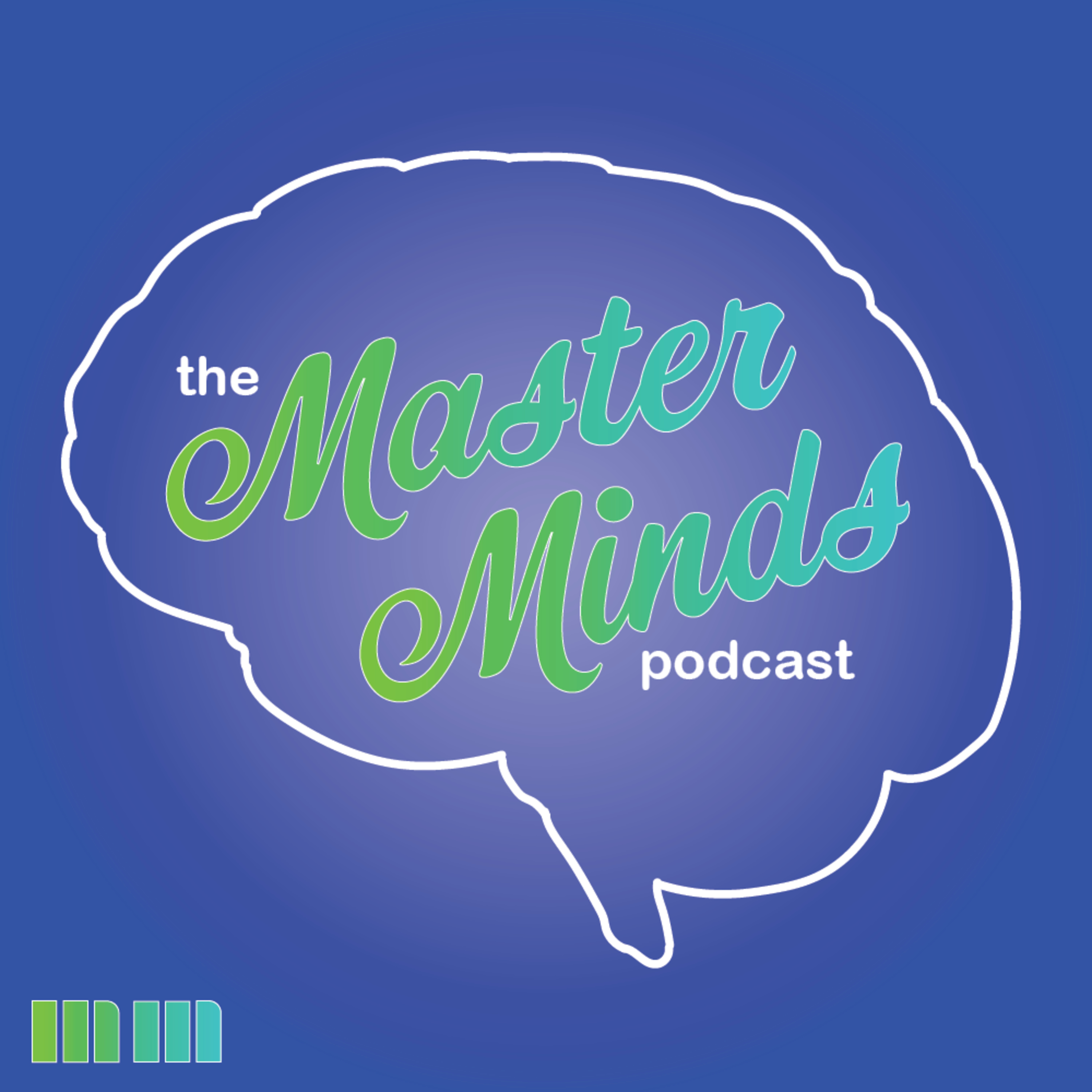
Master MindsEpisode #8: Blazing Trails in Academia (Literally) with Chancellor Mark Wrighton, PhDWe are so excited to have had the opportunity to sit down with Chancellor Emeritus of Washington University in St. Louis, Mark Wrighton. Over the course of twenty four years, he oversaw the establishment of the East End and several important endowed professorships, which brought renowned faculty members to Washington University. But what many don't know is that Wrighton made a name for himself in the world of chemistry by making major contributions to photochemistry and energy research that have grand implications for climate change mitigation. Listen now to hear about the former Chancellor’s career in chemistry, his le...
2021-10-2227 min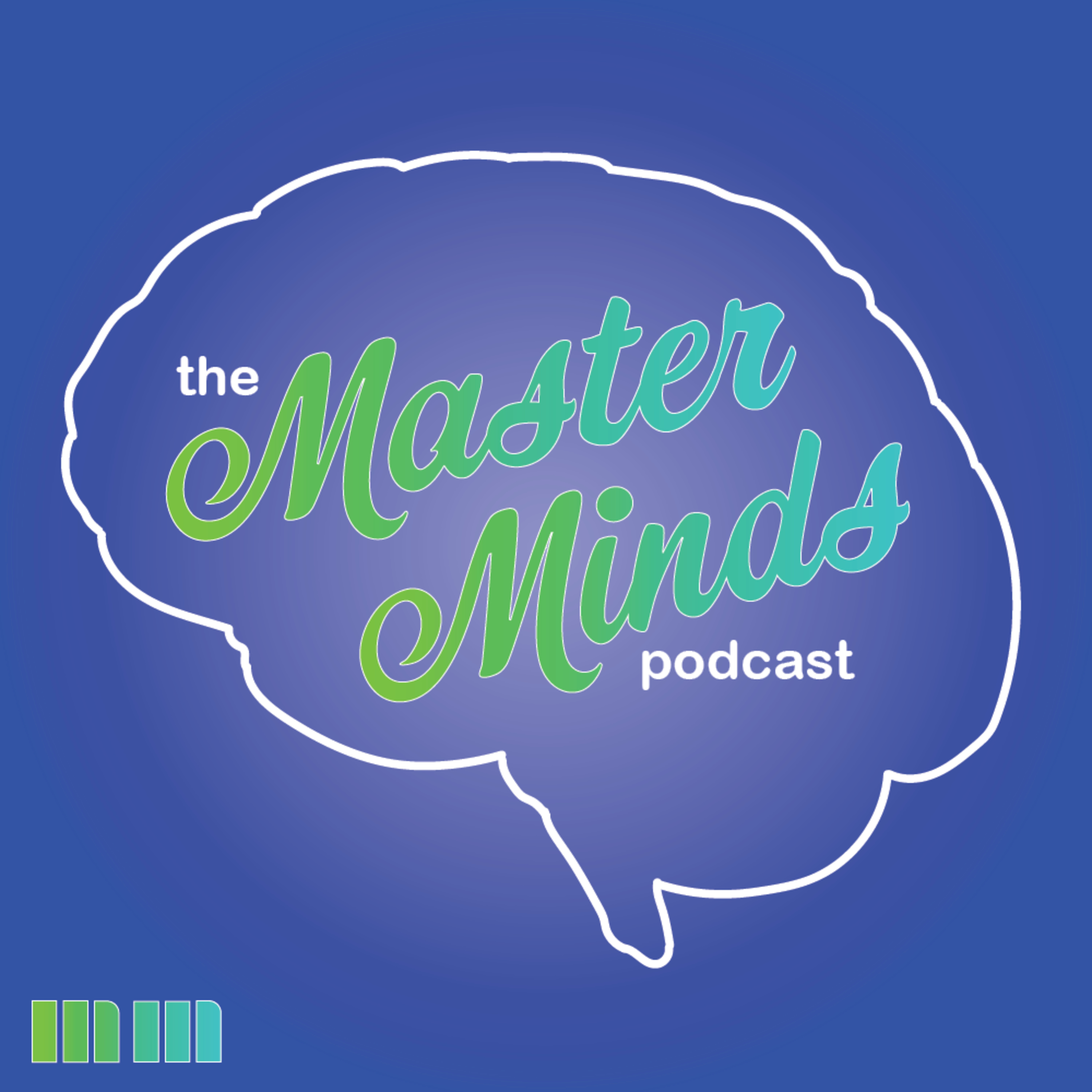
Master MindsEpisode #7: Behavioral Economics with Prof. Leonard Green, PhDDr. Len Green is Professor of Psychology and Economics and the director of Undergraduate Studies in the Department of Psychological and Brain Sciences at WashU. His research laid the groundwork for the field of behavioral economics: the study of the psychological factors that impact economic theories. Dr. Green did this in a rather unusual way; he performed studies on rats and pigeons! What can the behavior of these nonhuman animals and how they react to “income” and other economic situations tell us about the ways humans interact in the economy? Check out this episode if you want to learn about grou...
2021-09-1330 min
Master MindsEpisode #6: The Price and Politics of Healthcare with Dr. Karen Joynt Maddox, MD, MPHDr. Karen Joynt Maddox is the co-director of the Center for Health Economics and Policy at the Institute of Public Health here at WashU. By trade, she is both a Duke/Harvard-trained physician and health policy researcher. She now focuses on how to best improve healthcare administration—Where should hospitals funnel the most money into? What is the most equitable payment model? How do we make care more accessible across vulnerable populations? If you have ever asked any of these questions, but like me, have also been too turned off by American politics to research this stuff yourself, this ep...
2021-07-2535 min 2021-04-1901 min
2021-04-1901 min
Master MindsEpisode #5: Neuroscience: The Final Frontier with Dr. Nupur Ghoshal, MD, PhDDr. Nupur Ghoshal is a physician-scientist and associate professor of Neurology and Psychiatry at the WashU School of Medicine. She primarily treats patients with neurodegenerative diseases, such as Alzheimer’s and Parkinson’s. Her research focuses on the tau protein, a molecule that forms neurofibrillary tangles in the brain and has shown to be a promising biomarker for Alzheimer’s. Dr. G is also a committed medical educator, holding many teaching positions throughout WashU at the undergraduate, graduate, and post-graduate levels. In this episode, we discuss the exciting “final frontier”-like aspect of neuroscience and how doctors and researchers at WashU a...
2021-02-2435 min
Master MindsEpisode #4: Curing Childhood Cancer with Dr. Abby Green, MDDr. Green is a physician and scientist in the Department of Pediatrics at the WashU School of Medicine. Her practice and research focus on the etiology of genome instability in pediatric cancers and the resulting genome-protective responses, also called DNA damage responses, that are central to them. She spent her residency and fellowship at the Children’s Hospital in Philadelphia and is double board certified in infectious diseases and hematology-oncology. Her journey to get where she is today is both exciting and impressive, and started at the mere age of 7 years old. In this episode, we discuss everything from ho...
2021-02-1629 min
Master MindsEpisode #3: A Perspective on Health Inequity with Dr. Julia LopezToday, I’m talking to Dr. Julia Lopez—public health researcher, licensed social worker, and instructor at the Washington University School of Medicine. Dr. Lopez focuses her work on addressing gaps in research and clinical care in the areas of sexual and gender minority health, racial disparities, HIV care, and women’s health. Her goal is to provide a platform for these populations through practice, research and community collaboration.
Title music: World Is Holding Hands by WinnieTheMoog
https://creativecommons.org/licenses/by/4.0/legalcode
2021-02-0220 min
Master MindsEpisode #2: Candidate Matchmaking with Terry CrandallTechnology is heavily ingrained in the process of voting. From presidential polling to biased news sources and the media, the advent of digital communication has co-opted the process of informing ourselves and choosing the candidates we want to support. It seems that we are in need of a trusty third-party to hand us the facts. So today I’m talking with Terry Crandall—economics professor, realtor, entrepreneur, and founder of VotingSmarter, an unbiased, apolitical voting resource and app. Remember: “No more blind votes! No more election-night stands!”
Title music: W...
2020-09-2321 min
Master MindsEpisode #1: Feet, Forks, Fingers, Sleep, Stress, and Love with Dr. Pankaj VijToday I’m talking to Dr. Pankaj Vij, wellness physician, speaker, and author of the book Turbo Metabolism. Dr. Vij is passionate about preventing and reversing metabolic diseases by treating their root causes. He is a Director of the Lifestyle Medicine Global Alliance and the Chief Architect of Crack the Wellness Code - a global community platform for health promotion. Personally, I’m interested in his extremely successful holistic approach to medicine.
Title music: World Is Holding Hands by WinnieTheMoog
https://creativecommons.org/licenses/by/4.0/legalcode
2020-08-2325 min